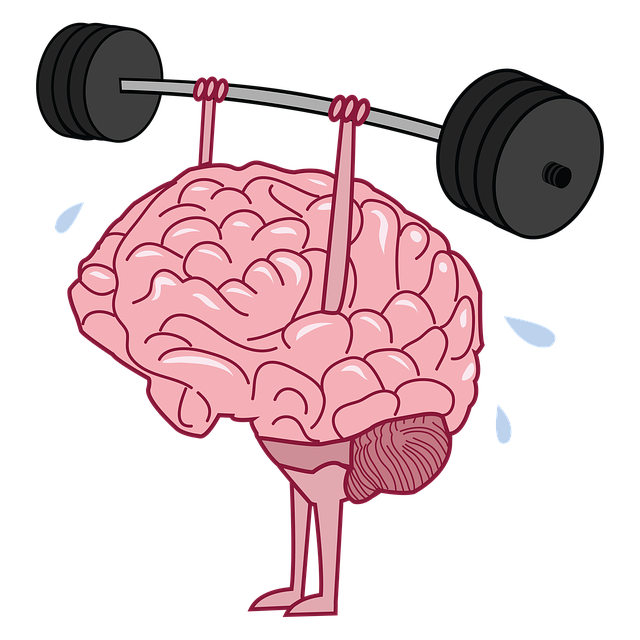Depression in children often goes unnoticed, but early signs like persistent sadness, changes in appetite or sleep patterns, and thoughts of death can indicate underlying issues. Acceptance and Commitment Therapy (ACT) is an effective approach teaching emotional acceptance and committing to action based on personal values, fostering resilience against challenging situations. By identifying risk factors such as trauma or bullying and employing evidence-based techniques like ACT, we can prevent depression from escalating in youth. Comprehensive strategies include family support, education, mindfulness practices, and advocacy for robust mental health policies, all aimed at building resilience and promoting the well-being of children.
Depression among children is a growing concern, but with proactive strategies, we can empower young minds to thrive. This article explores various prevention techniques focusing on early identification of depression signs and risk factors in children. We delve into evidence-based therapies like Acceptance and Commitment Therapy (ACT), which has proven effective for youth mental health. Additionally, we discuss building resilience, family support, education, and mindfulness practices for long-term mood management, emphasizing the importance of a holistic approach to combat childhood depression.
- Understanding Depression in Children: Early Signs and Risk Factors
- The Role of Acceptance and Commitment Therapy (ACT) for Youth Mental Health
- Building Resilience: Strategies to Foster Well-Being in Kids
- Family Support and Education: A Cornerstone for Depression Prevention
- Integrating Mindfulness and Lifestyle Changes for Long-Term Mood Management
Understanding Depression in Children: Early Signs and Risk Factors

Depression among children is a growing concern, yet it’s often overlooked due to its complex nature and the stigma surrounding mental health. Recognizing the early signs and understanding risk factors are crucial steps in depression prevention. Children may exhibit subtle changes in behavior or mood that can signal underlying issues. These signs might include persistent sadness, loss of interest in activities they once enjoyed, changes in appetite and sleep patterns, fatigue, difficulty concentrating, and even thoughts of death or suicide.
Acceptance and Commitment Therapy (ACT) is a promising approach to addressing childhood depression. This therapy focuses on promoting emotional well-being by teaching children to accept their emotions without judgment and commit to actions that align with their values. By fostering emotional intelligence and providing effective coping strategies, ACT helps children navigate challenging situations and build resilience. Identifying risk factors such as trauma, bullying, or genetic predisposition is essential, allowing for timely intervention using evidence-based techniques like ACT to prevent depression from escalating.
The Role of Acceptance and Commitment Therapy (ACT) for Youth Mental Health

Depression prevention strategies among youth have evolved to include innovative therapeutic approaches like Acceptance and Commitment Therapy (ACT). ACT is a form of therapy that focuses on helping children and adolescents accept their emotions rather than trying to suppress or avoid them, fostering emotional intelligence and resilience. By encouraging mindful awareness and values-based actions, ACT aids in the development of healthy coping mechanisms, enabling youth to navigate life’s challenges more effectively.
This therapy goes beyond traditional talk therapy by integrating cognitive and behavioral techniques with acceptance and mindfulness practices. It promotes the understanding that struggle is a normal part of life, teaching young individuals to engage in emotional healing processes without judgment. Through ACT, youth are empowered to align their actions with personal values, enhancing overall mental well-being. This approach has garnered significant attention in mental health policy analysis and advocacy, as it holds promise for preventing depression and improving the lives of young people.
Building Resilience: Strategies to Foster Well-Being in Kids

Building resilience is a crucial aspect of depression prevention, especially for children. By fostering well-being early on, we can equip kids with strategies to navigate life’s challenges and maintain mental health. Empathy building strategies and Mind Over Matter principles play a significant role here. Encouraging open conversations about emotions, teaching coping mechanisms like mindfulness, and promoting positive self-talk help children develop a healthy mindset. Acceptance and Commitment Therapy (ACT), for instance, teaches individuals to accept difficult thoughts and feelings while committing to actions that align with their values. This therapy can be particularly beneficial in helping kids manage stress and anxiety effectively.
Beyond individual strategies, Mental Health Policy Analysis and Advocacy is essential in creating supportive environments for children’s mental health. Ensuring access to quality therapy services for kids, integrating mental health education into school curricula, and promoting community awareness about childhood depression are all integral parts of a comprehensive approach. By combining these efforts, we can build resilience on a larger scale, ensuring that children have the tools and support systems they need to thrive and prevent depression as they grow up.
Family Support and Education: A Cornerstone for Depression Prevention

Family support and education play a pivotal role in preventing depression among individuals. Creating a nurturing environment at home where open conversations about mental health are encouraged can significantly reduce the risk of depressive episodes, especially in children. Early intervention through therapy for children, such as Acceptance and Commitment Therapy (ACT), has proven effective in teaching coping mechanisms and fostering resilience.
Parent education programs that emphasize cultural sensitivity in mental healthcare practice ensure tailored support. By understanding the interplay between trauma and depression, families can access appropriate Trauma Support Services. Furthermore, advocating for robust Mental Health Policy Analysis and Advocacy ensures better resources and accessibility to evidence-based treatments, ultimately strengthening the foundation of mental well-being within households.
Integrating Mindfulness and Lifestyle Changes for Long-Term Mood Management

Integrating mindfulness practices into daily routines can be a powerful tool for long-term mood management. This involves training the mind to focus on the present moment, increasing awareness of thoughts and emotions without judgment. Through techniques like meditation and deep breathing exercises, individuals can develop a greater sense of calm and resilience in the face of stress or negative thoughts.
In conjunction with mindfulness, making positive lifestyle changes is essential. This includes adopting healthy habits such as regular physical activity, adequate sleep, and a balanced diet. These lifestyle adjustments not only contribute to overall well-being but also play a significant role in supporting mental health and preventing depression. Additionally, encouraging children to participate in these practices early on can foster healthy coping mechanisms and enhance their ability to navigate life’s challenges, potentially reducing the risk of developing mental health issues later in life, including Burnout Prevention and effective Crisis Intervention Guidance.
Depression prevention in children requires a multifaceted approach, from recognizing early signs and addressing risk factors to integrating evidence-based therapies like Acceptance and Commitment Therapy (ACT) and mindfulness practices. Building resilience through supportive family environments and educational initiatives is key to fostering well-being. By combining these strategies, parents, caregivers, and educators can create an environment that promotes mental health and empowers children to navigate life’s challenges with greater ease.














